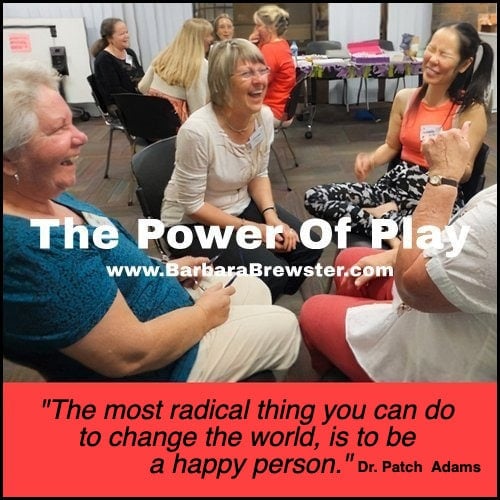“Wherever you are, be there totally,” – Eckart Tolle.
Parenting is a unique, challenging journey filled with ups and downs. It’s natural to worry about your child’s future, and as parents, there are things we can do to set them up for success. One of these is helping them build resilience. There are different experiences we can provide to help them enhance their emotional resilience, and one of these is mindfulness.
The connection between mindfulness and resilience
Have you noticed the surge in conversations around mindfulness and its importance? It’s become increasingly well known and commonly discussed since the 20th century. So how can mindfulness help in parenting? And how does it equate to an emotionally resilient child?
In this context, being mindful means taking the time to notice and be present in every moment. So, by practising mindfulness, your child can develop social awareness and positive habits that build resilience and other qualities that help them succeed in life.
Think about when you enter a dark room and stand at the doorway feeling for a light switch. You might search for a long time looking for it, but you know that it’s there. When you finally find the switch and turn on the light, brightness filters into the room to reveal a familiar space. This is a perfect analogy for how mindfulness can help us. When we slow down and give ourselves time, we can connect with ourselves, our emotions, our thoughts and our energy to reveal a better experience.
6 mindful parenting tips
So how can you help your children use mindfulness to build emotional resilience? Here are six practical and straightforward methods.
1. Model mindfulness in your day to day
Our children are always watching us, even unconsciously. It is a big part of their development. They’re like sponges, absorbing what they see and hear, and trying to copy it. So, if our children see us practising mindfulness, they will come to understand what it is and begin to replicate the behaviour. Especially if you make an effort to include them in your mindful practices.
You can do this by sitting quietly, focusing on your breathing, and looking inward to examine your thoughts and feelings. When your children see you doing this, they will likely become curious and want to try it with you. Invite them to join you, and even talk them through the process. The earlier you expose children to mindfulness, the more naturally it will become a part of their life.
2. Create a routine of mindfulness
Just as we teach them to brush their teeth or pack their bags for school, we can teach children the routine of mindfulness. Together, you can plan when it can be part of your day. Maybe it’s in the mornings before school to set them up for the day, or maybe right before they go to sleep to help them wind down. It also helps to create a purposeful mindful environment where your child can be comfortable and relaxed. Use it daily and name it something like “my mindfulness spot.” This will help make sure it is a deliberate, consistent part of their day.
3. Explore emotions mindfully
Emotions are like visitors. They come and go, some for a short time, some for a long time. If a child can learn to identify the emotions that come to visit and respond accordingly, it will ultimately help them develop resilience.
The goal is to be present with your emotions and listen to what they say. Children should accept the emotion they are feeling and make space to experience it. Provide them with a space to feel it, like their “mindfulness spot”, and ensure they understand that it’s okay to just sit there and let the emotions come. They can even talk to them like they would a friend, or just sit and listen. Through this process, they can get to know their emotions more fully and how to respond.
4. Connect mindfully with thoughts
Does your mind race with a million thoughts a day? Your child’s probably does too. They can learn to slow down these thoughts and consider which are helpful and which aren’t.
I like to teach children a game called ‘catch and change.’ When a thought comes into the stream, they can catch and change it into something more positive or constructive.
5. Be present with your senses
Your senses can tell and teach you a lot. They exist to signal what is happening to our bodies as well as the world around us. That’s why it’s important to teach our young people to be fully connected to their senses. It can help them achieve a greater connection with themselves and thus practice better mindfulness. A fun way to do this is getting your child to identify five things they can see, four things they can touch, three things they can hear, two things they can smell, and one thing they can taste.
6. Practice mindfulness consistently
Teaching yourself and your child mindfulness doesn’t happen overnight. It takes time, practice and patience. By leading by example and consistently demonstrating the importance of mindfulness, it will gradually become more natural for your child to incorporate these into their daily routine. And the more mindful they come, the more emotionally resilient they are, and the more emotionally resilient they are, the better they can handle life’s challenges as they move into adulthood.
Talk to The Resilience Tutor to improve your mindful parenting
Start incorporating one of these six practices into your daily routine and see its positive impact on your child. Or, for further guidance ask us about our family resilience tutoring, where you’ll gain insights into parenting your anxious child with mindfulness and acceptance. Consider it your mindful parenting training to help you better understand how to practice these 6 tips. Find out more here.
My name is LK Tommi – I’m an educator working in the education and psychology field, and the author of a resilience-based book and journal series supporting children and teenagers to better understand their emotions, thinking, energy, and behaviour, and how it all connects with their everyday life experiences.
The people that know me well will tell you how much I love to chat.
Please connect with me at Facebook and Instagram: The Resilience Tutor
Website: www.theresiliencetutor.com.au










Add comment